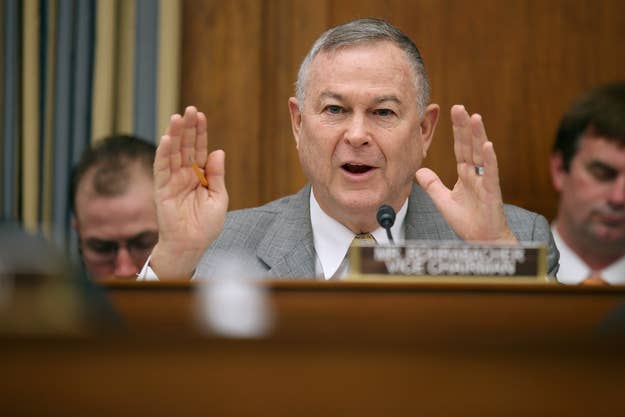
A House Foreign Affairs Committee hearing on Islamic extremism in Chechnya on Friday did little to reveal any new insights about Chechnya or Chechens, but was the first time the often-neglected region has gotten any serious attention from Congress in years. It was also an unusual moment in which both Democrats and Republicans argued for a closer working relationship with Russia on these issues.
Chechnya and other areas of the North Caucasus remain a mystery to lawmakers, if the hearing, which featured a panel of think tank experts and professors, is any indication. The Subcommittee on Europe, Eurasia and Emerging Threats, led by Rep. Dana Rohrabacher, couldn't get anyone from the State Department to come.
"We did try to get a State Department representative here," Rohrabacher said. "But they declined. They were too busy to send someone here to the US Congress to speak with the American people through public hearings like this."
"That may well be part of the problem," Rohrabacher continued. "This region has not gotten the attention it deserves." (A State Department spokesman didn't return a request for comment about the agency's absence at the hearing.)
The region is now getting enough attention to make up for the last dozen years of neglect in the news because of the background of the Tsarnaev brothers, ethnic Chechens who spent their childhoods in Kyrgyzstan and Dagestan. And the Boston attack has caused a rare moment of trust between the United States and Russia, as it has turned out Russia tried to warn U.S. authorities about one of the suspects well before the attacks.
"Central Asia as we are describing it and the Caucasus represent a huge chunk of the planet, and if that area comes under the control of radical Islam that makes it its job to attack the United States and other non-Muslim peoples, that will be a disaster for every person on this planet," Rohrabacher said.
He said the way to prevent this was by enlisting Russia's cooperation and with the governments of Central Asian nations. Rohrabacher said he had asked the Russian embassy to send over a witness; they had sent Andranik Migranyan, the president of a pro-Putin think tank in New York. "I'm sorry the Russian embassy can send people but the State Department won't," Rohrabacher said.
Rep. Bill Keating, who represents southeastern Massachusetts, agreed with Rohrabacher, saying "there is an undoubtedly a delicate balance between cooperation with Russia on counter-terrorism and concern over Russia's human rights abuses, but in no way should this hinder working together to protect the lives of innocent people."
"At the end of the day, that is what we all want," Keating said.
There was a debate at times among the members of Congress about certain aspects of Chechen politics, particularly about the difference between the effort to build an Islamic caliphate in the Caucasus and the secular struggle for Chechen independence from Russia.
Rep. Ed Royce, chairman of the House Foreign Affairs Committee, said he had the impression that the Chechen fighters' cause "was much more than just a movement for Chechnyan independence, it was a more ambitious idea for a caliphate for the whole region." Royce was referring to the Caucasus Emirate, a movement that has been classified as a terrorist organization by Russia and by the United States. The UN Security Council in 2011 put the Caucasus Emirate on a list of organizations affiliated with al-Qaeda.
Paul Goble, a former State Department official for the region who is now a professor at the Institute of World Politics, acknowledged that there was a strain of Islamic extremism in Dagestan and Chechnya funded by foreign terrorism financiers in Saudi Arabia and elsewhere, but said that a secular Chechen independence movement still exists.
"I would argue there's stil a Chechen national movement that's committed to a secular and free Chechnya," Goble said. "It's been unsuccessful."
Rep. Rohrabacher accused Goble of saying that America had somehow invited the attacks.
"I'm trying to provide an explanation and an answer," Goble said. "I certainly do not believe that we bear responsibility either then or now for what happened."
"I do appreciate Mr. Goble's efforts to distinguish the Muslim religion from some of these extremist groups," Keating said.
Rep. Ted Poe, who said he was "irritated" by the fact that the State Department hadn't sent over a witness for the hearing, asked the witnesses about Tamerlan Tsarnaev's six-month stay in Dagestan in 2012.
"There are places in highland Dagestan where no outside official has ever been," Goble said. "I'm much more concerned about the six months in Dagestan than I am about the fact that he's an ethnic Chechen."
In closing, Rep. Rohrabacher gave another warning about the threat of Islamic extremism and threw in a mention of China.
"Radical Islam and China appear to be the main threat to the free world," Rohrabacher said before adjourning the hearing.
